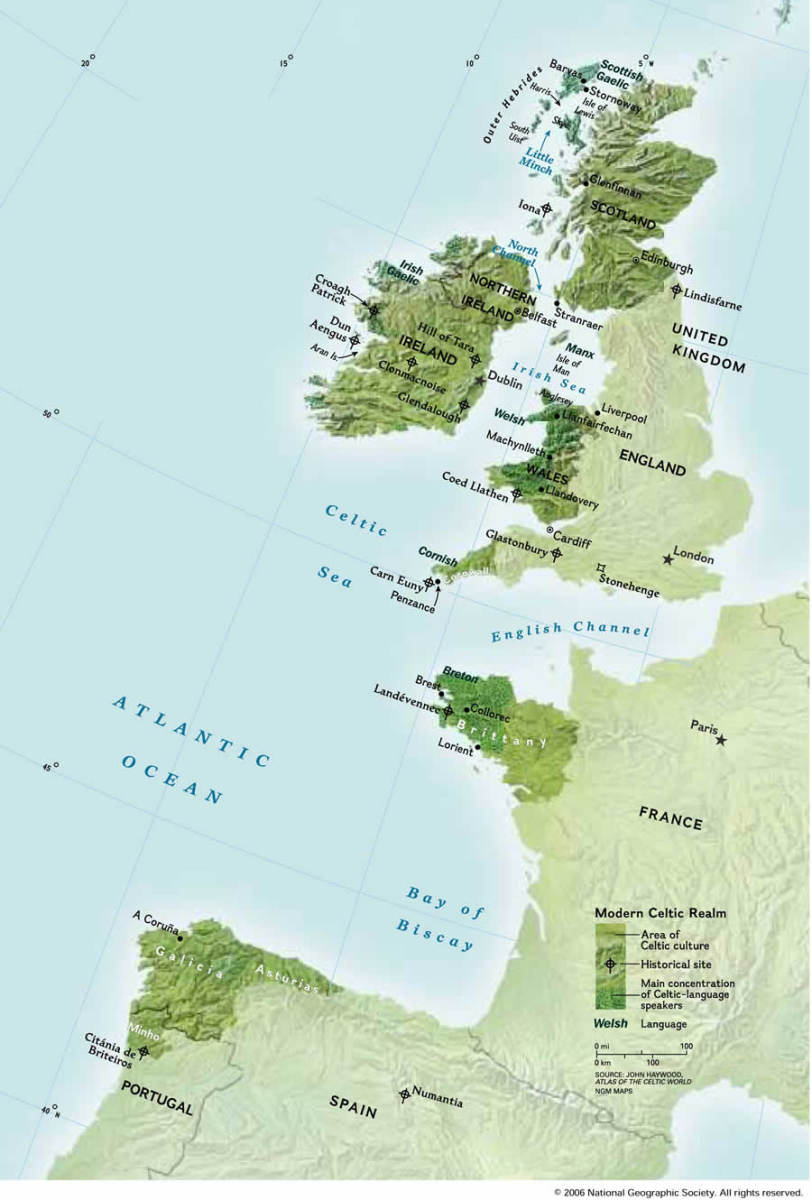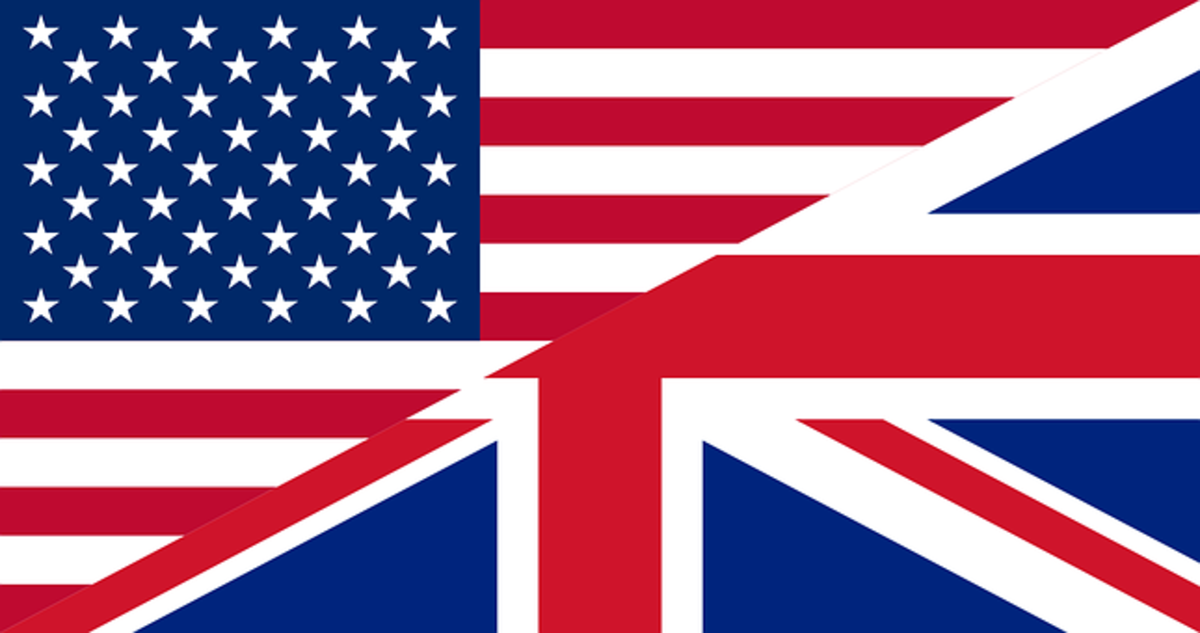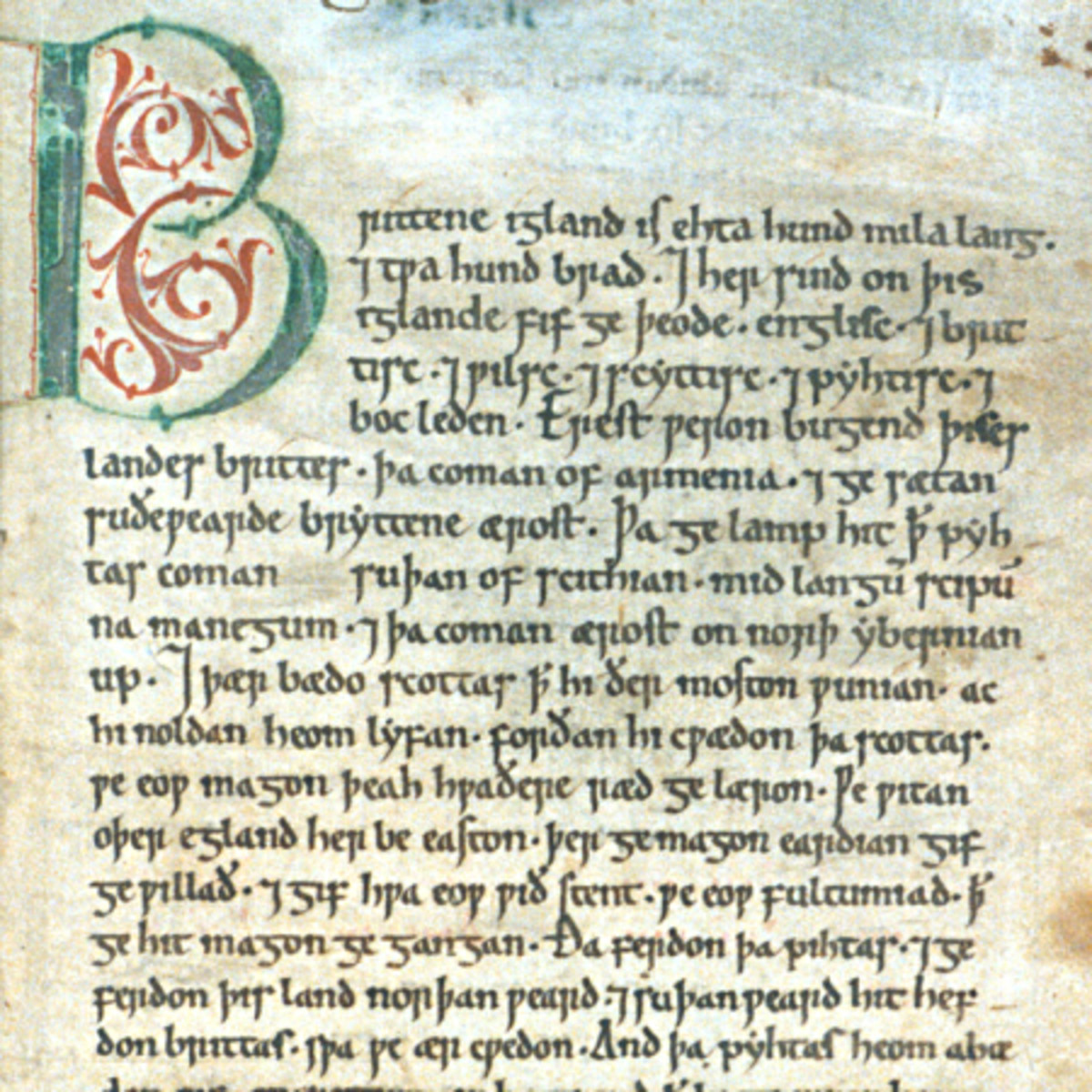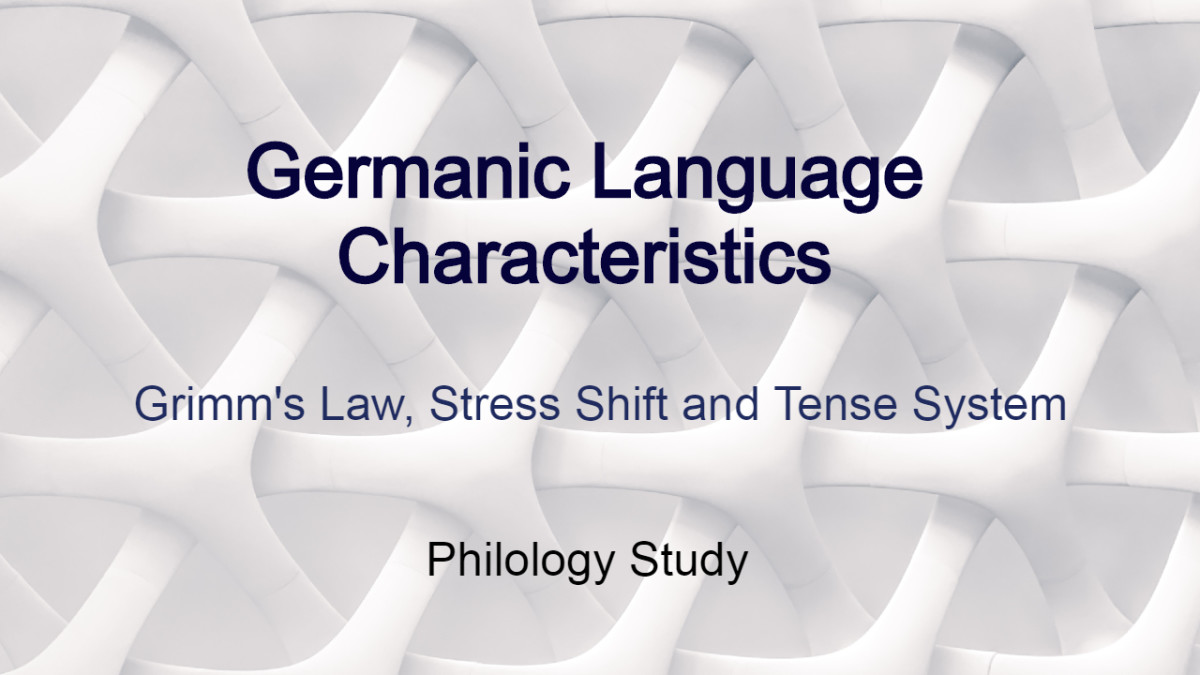How Did American English Originate and Become Different from British English?
Languages Evolve, and Are Seldom Invented
Languages in general, tend to evolve, and are rarely created by design.
One exception I can think of is the Klingon Language, which was deliberately invented to provide realism to the Klingon characters in the "Star Trek" TV series and movies.
It is fantasy, but at the same time, it is a full language, complete with a dictionary.
Would you believe you can actually study Klingon, and become fluent?
Conscious thought comes later in the evolution of languages; much later in the process, as the language spreads over ever wider geographical areas, and a way must be found to allow for widespread communication that remains understood by all.
That is where the concept of rules of grammatical structure and dictionaries come into play. Otherwise, we'd have the proverbial 'Tower of Babel.' (Babble, it becomes!)
Babble: How Do You Say "Please" In Other Languages?
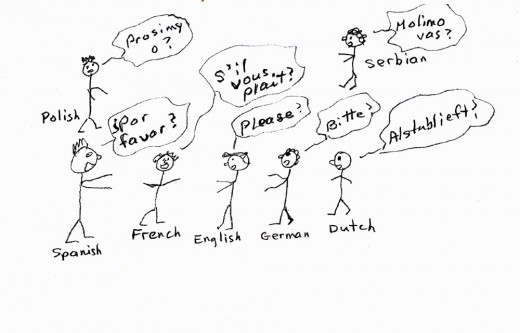
Another Invented Language
Esperanto is another invented language, but one that is actually in use for serious communication. It was invented back in the 1800's, and was intended to make it easy for speakers of various European languages to understand each other, even if they did not know each others' languages; it's sort of a 'middle ground' language.
Esperanto, for example, is based upon root words that are similar in all of the languages, so even if the final word differs, it is easy to recognize. For example, "window" in Italian is "finestra," in French, it is "fenêtre," and in Spanish, "ventana." Esperanto gives it as "fenestro."
In this case, the Spanish is the stretch in understanding the translation, but overall, it seems to be a workable, if relatively unknown language, at least in the major English-speaking countries; it's more commonly used in Europe.
Back to Reality
Back to practicality and our discussion of the differences between American and British English.
Some would give credit to Noah Webster as the "father" of modern English. That would be a mistake. What Webster did was catalog the existing language of his day; he did not invent the language. He merely provided the first dictionary of the American English language.
Noah Webster
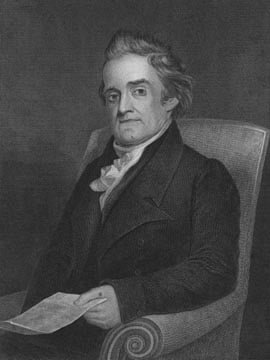
We Are All Speaking the Same Language--Why Don't You Understand Me?
The English Language, in any of its variations, can be absolutely maddening. People are speaking the same language, and yet, can have difficulty understanding one another.
In essence, this is because it is what can only be called a 'bastard' language. Its roots are not pure, from a single source, such as old Latin. English is a language that has borrowed heavily from many other languages, only a few of which include German, French, Spanish and Latin.
There was an instance of someone trying to translate a document, and asked his supervisor, "How do you spell 'maneuvers' in French?" Well...the answer is--there is no spelling change, because it is a French word to start with.
Proximity To Other Countries
As you can see on the map at below, the United Kingdom, or UK, sits in close proximity to France, Germany, Spain and Portugal. Italy is a bit farther away, but back in the days of the Roman Empire, those Romans got into everyone's lands. Italy is what is left, physically, of that Empire, but the influences of those days live on in surprising places all around the globe.
As you probably know, and can see on the map, the UK is an island, as is its neighbor, Ireland. Farther away are the Scandinavian countries of Norway, Sweden and Denmark. However, those were the lands of the famed Vikings, who had sea travel down to a science early on. Therefore, English also has roots coming from those languages.
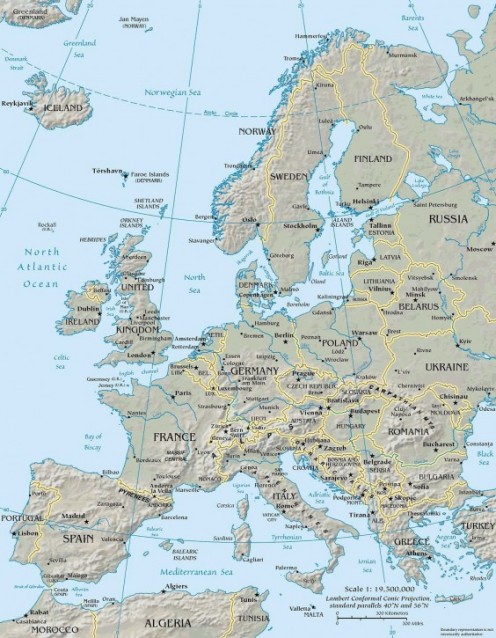
Language Families
There are many families of languages, but two are of prime importance in the development of English, and those are the Germanic and Latin families.
The Germanic languages include obviously German, but also (in the distant past) the Scandinavian tongues and Dutch. I read a fairly detailed article published from San Jose State University that goes into considerably more detail on the matter.
The Latin (sometimes called "romance") languages include actual Latin and its derivatives of Italian, Spanish, Portuguese and French. They are listed here in order of their evolutionary distance from the original Latin.
Latin Roots, Germanic Roots: Mix Well and Bewilder Everyone
For example, in the Latin languages, it is proper to identify the subject of a sentence prior to any adjective, thus: "The dog brown was sleeping." ("La chien brun dormait," in French.)
Notice, there is also no dual verb, ("was"), as the past tense is covered by the conjugation of the verb "sleep." You want confusing? How many ways are there to describe "sleep" in French?
It sounds very awkward in English, for we are accustomed to the reverse phasing, "The brown dog was sleeping." In German, we get, "Der braune Hund schlief," 'braune' being the German word for brown, so we see that the English sequence follows that of the German rules.
Elisions, Contractions, Misunderstandings, and Usage Changes
Oh, what fun! We have more changes between the variations of English that come about due to misunderstandings, deliberate changes to fit new circumstances, and simple contractions and elisions that come about naturally over time as a result of lazy speech patterns.
"Apron" is one such example. In the original British English, the word was "napron." It was paired with the letter "a" to indicate one. "Please put on a napron to keep your clothes clean."
I don't imagine it was very many centuries at all before the "a" migrated across to the rest of the word, splitting it after the "n," making the sentence read, "Please put on an apron ...." thus following the rule with which we are now familiar, that a word begun with a vowel is preceded by "an."
Some of the differences that come about between the languages, I'm not sure of; with others, I can hazard a reasonable guess. Check the chart below for some common cases of different words for the same thing. You'll note that one of the differences can be cause for a very embarrassing social misstep.
Some Common Differences
BRITISH ENGLISH
| AMERICAN ENGLISH
|
|---|---|
Nappy
| Diaper
|
Lorry
| Truck
|
Lift
| Elevator
|
Ladder in one's Hose
| Run in one's Stocking
|
Telly
| TV; Television
|
Pub
| Bar
|
Knock me up in the morning
| Wake me in the morning
|
Bonnet
| Car's Hood
|
Boot
| Car's Trunk
|
Windscreen
| Windshield
|
Dialects, Regionalisms and Class Distinctions
As if all this were not confusing enough, there are certain turns of phrase that may be common in one area of a country, and completely unheard of in another region.
Likewise, there are certain accents that can identify a person's area of origin. The British English often spoofed on such shows as the old Benny Hill TV series, is closer to "Cockney," which is also the variant you hear with Liza in the early parts of the stage musical, "My Fair Lady." Then, there is the clipped, sharp, British accent heard from their newscasters.
You might compare the two as the difference between a Boston accent from here in the States, and an accent from the Bronx in New York, or the drawl of the deep South. They can be nearly indistinguishable to the untrained ear, as in the case of a young woman from the northern US going to the South for college.
The lady from whom she was going to rent an apartment asked, "D' y'all have aynyee payots?" The young woman was puzzled. "Payots?" She was not familiar with the word, and asked what those were. "Payots," repeated the woman, "You know, cayts and dawgs--payots." Oh. Pets.
Spelling Variants
Most of us have seen the common spelling variations between British English and American English.
They involve such words as: color, honor, favor....which in Great Britain, are spelled with the addition of a "u": colour, honour, favour.
Spell checkers for American English will flag those as misspelled every time, however, on this writing site however, with writers from around the globe, either is accepted.
I can see, however, that the proximity to France and the other countries with Latin-based languages is probably responsible for these particular variation. In French, for example, the first two examples are spelled as, "couleur," and "honneur." The folks in the UK got rid of most of the other "extra" letters, but not the final "u."
Many Other Varieties of English Abound
Of course, English is spoken in many countries worldwide, not just the USA and Great Britain. English is also spoken in Canada, Australia, New Zeland, Belize, parts of Africa, the Philippines, Malaysia, Guam and in many other places. Each is bound to have its own idiosyncrasies and accents. Think of the sing-song rhythm of the English spoken in Jamaica; or the (unfortunately stereotyped) "G'dai, maite" of the Australians.
In many other countries, English is a common second language--there are many places to which one can travel and get along just fine without knowing anything of the "official" language of that country.
In fact, it may surprise you to know that English is so universal, that it is the international language of diplomacy and of international air travel.
Did you know that any commercial pilot conversing with any control tower in any country will be doing so in English, regardless of the country of origin of the airline or its pilot? It's true.
© 2012 Liz Elias



